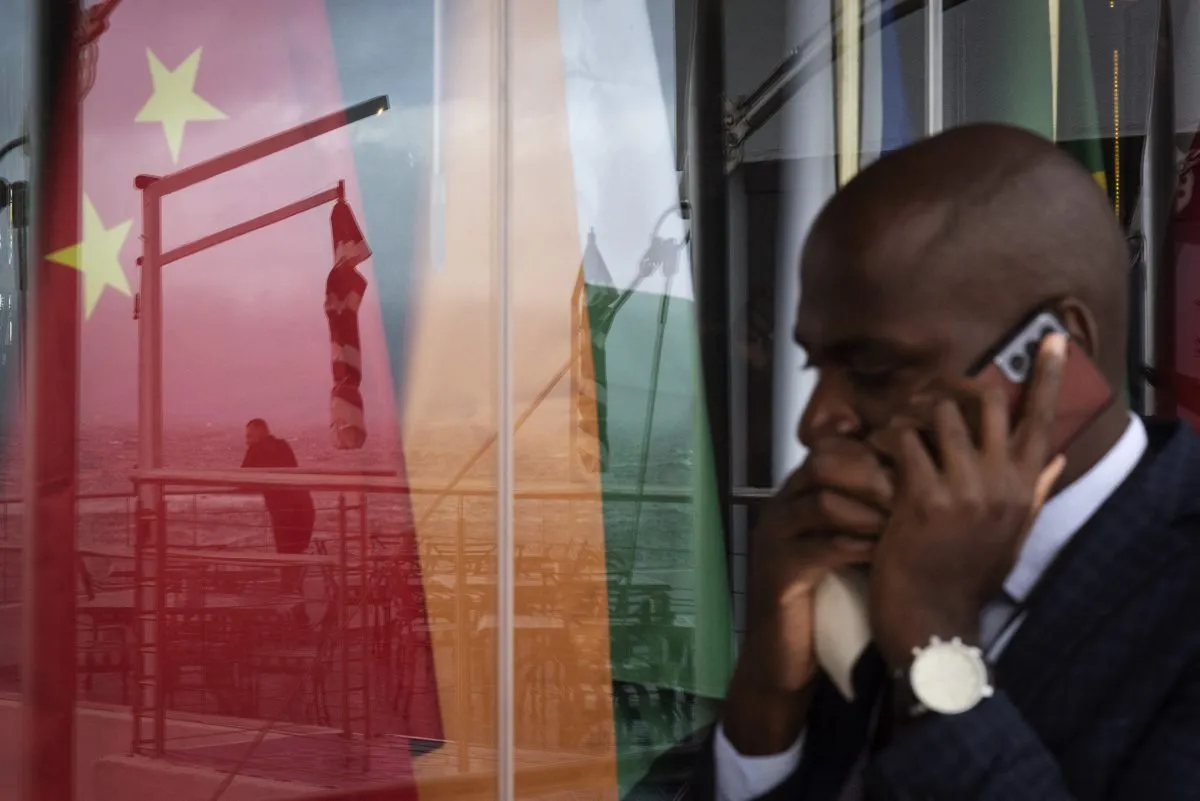The Chinese firm Transsion Holdings is most well-known for smartphones only sold in African countries, including brand names Tecno, Itel and Infinix. Due to these brands, in the third quarter of 2023, Transsion surpassed Vivo to claim the fifth spot globally in mobile phone shipments, with its global market share reaching 8.6% and an African market share of around 40%.
But Transsion’s story is deeper than smartphones, and its story provides invaluable insights around the likely shape of Chinese foreign investment in Africa going forwards as well as lessons for other foreign investors looking to succeed in Africa.
Crucial to Transsion’s initial success was its ability to adapt to the ever-evolving dynamics of the global mobile phone landscape. Steering clear of the highly competitive domestic market, Transsion positioned itself strategically in Africa, leveraging its familiarity with feature phone products and combining it with China’s supply chain advantages to win in Africa.
Transsion developed and then made assembled-in-Africa phones with features tailored for the African market, such as a “four-card, four-standby” design, allowing users to switch to another SIM card when one has no signal. Additionally, Transsion created facial recognition algorithms based on African facial data, ensuring better photo quality for African users. This attention to local needs was a key driver of Transsion’s success.
New products for African consumers
Transsion is now replicating that for other products. Most recently, a notable innovation has been the “swallow maker” launched under Transsion’s high-end home appliance brand, Syinix.
It is the world’s first electric machine to cook various types of swallow food – a category of dough-like African and Indian staple food made of cooked starchy vegetables and/or grains such as fufu, banku, ugali, and more.
The product was developed over two years after extensive research and field visits to over 10 African countries. It’s effectively Africa’s equivalent of a rice cooker, applicable across the continent, crucial in the context of an African Continental Free Trade Area with zero tariffs across borders.
Boomplay, another Transsion-affiliated company, has also made significant strides in Africa. Boomplay has 98 million monthly users in Africa, compared to Spotify’s 75.5 million. Focusing solely on the African market might be seen as a loss-maker to other investors, but in a context where Africa’s youth population will continue to grow while the rest of the world ages, it’s a focus that will likely be highly profitable for years to come.
Boomplay’s success can be attributed to its investment in local offices – Boomplay has offices in Nigeria, Kenya, Ghana, Tanzania, Côte d’Ivoire, and Cameroon, double the number of Spotify’s offices in Africa. This strong local presence, along with tailored content and innovative strategies such as signing direct licensing agreements with major music labels, and the integration of Boomplay with Transsion phones, has been pivotal to its African market dominance.
In a world where many other investors have struggled or even withdrawn from the African market recently, such dedication to African markets and product development is uncommon. For example, Diageo, a UK-based alcoholic beverage giant, announced its divestment from Guinness Nigeria last month, citing significant losses. Singapore’s Tolaram quickly filled this gap. Other major firms like Microsoft and South Africa’s Shoprite and Tiger Brands have also exited or scaled down operations in Nigeria. The reasons for these exits include an inability to compete with lower-cost rivals, failure to adapt to local market conditions and economic downturns.
Asia ascendent
The fact is, non-Asian multinationals often prioritise maximising profits and repatriating earnings, which can result in a lack of investment in local resilience. This approach fails during economic downturns, leading to a loss of market share to Asian companies like Fidson Healthcare and Hayat Kimya AS, which excel in non-market strategies and have a deeper understanding of their consumers.
This localisation and resilience is a major reason why, slowly but surely, Asian – and especially Chinese – investors in Africa have risen fast over the last two decades. Chinese FDI stocks in Africa grew from $490m in 2003 to $40.9bn in 2022, peaking in 2018 at $46.1bn. That’s an almost 100-fold increase, and has made China Africa’s fifth largest investor, ahead of the United States since 2014. It is also why, despite falling somewhat during the COVID-19 pandemic, our expectation is that Chinese FDI in Africa will continue to rise significantly over the next few years.
That said, what Transsion has done is not enough to meet Africa’s holistic needs, especially for jobs and industrialisation. Transsion and other Chinese companies, as well as other global multinationals need to go further and actually manufacture machines and technologies in Africa, to create much-needed jobs and facilitate technology transfer, aligning with the African Union’s Agenda 2063 for industrialisation.
Some are already doing so. For instance, Hisense, also a Chinese company, started a home appliance factory in South Africa in 2013, directly employing over a thousand people.
With the upcoming FOCAC9 happening in September in Beijing, there is a significant opportunity for China to enhance its investments and potentially become the top investor in Africa. More Transsion and Hisense-like factories across the continent – perhaps in regional hubs – making locally designed and adapted consumer products from smartphones to swallow-makers to fridges – designed locally for Africa’s growing, young middle class, is more likely to be a formula for success than the previous formulas used by other foreign investors.
– This special report was produced in conjunction with Development Reimagined
Want to continue reading? Subscribe today.
You've read all your free articles for this month! Subscribe now to enjoy full access to our content.
Digital Monthly
£8.00 / month
Receive full unlimited access to our articles, opinions, podcasts and more.
Digital Yearly
£70.00 / year
Our best value offer - save £26 and gain access to all of our digital content for an entire year!

 Sign in with Google
Sign in with Google 



